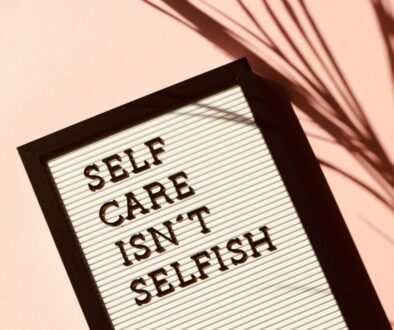How To Work On Yourself: 10 Tips For Self Improvement
Why is it Important to Work on Yourself?
Self-improvement is about continuous growth, learning, and evolving into the best version of yourself.
Why is it important to work on yourself? it can help you boost your career, strengthen your relationships, improve your mental and emotional health.. It can simply help you to live a happier life and unlock your full potential!
These are 10 tips you can apply to work on yourself and improve your life:
1. Embrace Failure
One of Napoleon Hill’s famous quotes from Think & Grow Rich – “Every failure carries with it the seed of an equal or greater benefit”
Failure can be painful and might set us back and make us doubt ourselves but in fact it’s a blessing in disguise to help us grow and be more resilient.
Most successful people have failed many times before reaching their goals. What you can do is analyze what went wrong, learn from mistakes so you can adjust your approach and try again and again until you succeed.
2. Focus on your Health and Fitness
Your physical health is the foundation of all other aspects of your life. Exercise regularly, eat a balanced diet, get enough sleep, and practice self-care to maintain your well-being. When your body is strong, your mind is more capable of handling life’s challenges.
Tip: Aim for at least 30 minutes of physical activity each day, whether it’s a walk, workout, or yoga session.
3. Build a New Healthy Habit
“Small habits, when repeated consistently, lead to remarkable results” – James Clear
Developing healthy habits can significantly improve your life over time. Start small so you don’t overwhelm yourself and give up like usual, take small steps every day, the key is to stay consistent, it’s better to do a little bit every day than a lot occasionally.
Break it down, start with small, manageable steps, for example, if you want to start exercising, begin with a 5-minute walk each day and start working your way up!
How To Get 1% Better Every Day - James Clear
4. Manage Time Effectively
You heard the saying “Time is Money” – It means that time is priceless and precious.
We all feel that we don’t have enough time, with so many distractions nowadays, a lot of social media platforms and daily multitasking, we may find ourselves scrolling through social media or checking emails when we could be focused on other tasks, that’s one of the reasons why it can feel like time is disappearing so fast!
Try turning off your phone and internet access for a whole day. You will probably feel like the day is taking forever to end..
You can start by organizing your day, setting priorities, and eliminating distractions so you can focus on the most important tasks first and make more time for activities that contribute to your personal growth.
Tip: Follow the Pomodoro Technique—Work in focused 25-minute intervals with 5-minute breaks in between.
5. Set Boundaries
Learn how to say NO. Simply No, with no explanation needed and without feeling guilty. You don’t have to please everyone, in fact it’s impossible… The only one you need to please is YOURSELF!
It’s not about being rude or selfish but about prioritizing your own needs and well-being.
Always put yourself and your needs first, so you can protect your time, energy, and emotional health. Although it may be difficult at first, learning to set and enforce boundaries ultimately leads to more fulfilling and respectful relationships—both with others and with yourself.
6. Learn How to Deal with Stress
Stress is inevitable, don’t run from it, face it and learn how to manage it.
Get in touch with your emotions and find the root source of what’s causing you to stress, identify it and understand how important it is and does it affect your future? Can you control the situation and change it? if Yes, do something about it, if Not, there’s nothing you can actually do.
Tip: Some quick and effective techniques to feel better are deep breathing, practicing mindfulness, watch something funny, disconnect, engage in an activity or hobby you love, listen to music.
7. Read Books
Reading can be therapeutic. Self-help books, for instance, can help you develop new perspectives and ways to cope with everyday life and help you get better mentally.
Incorporating more books into your daily routine can significantly improve your overall well-being and quality of life. Studies have shown that staying mentally active can help reduce the risk of cognitive decline and conditions like Alzheimer’s or dementia as we age. Reading is actually one of the best ways to work on yourself.
If you don’t like to read you can listen to podcasts from different experts, leaders, and specialists across various fields whenever and wherever you want.
8. Cultivate a Positive Mindset
It’s hard to stay positive all the time especially while being in a negative environment or during a hard phase of your life… but try to focus on the positive aspects of it. Instead of comparing your life to others be grateful for what you have, it can shift your attention away from what’s lacking or going wrong, to a more positive perspective on life.
Surround yourself with positivity, the environment around you can greatly influence your mindset. Be around people who uplift and support you, it can boost your mood and reinforce your positive thoughts, stay away from toxic or negative environments that drain your energy.
Tip: Train your brain to look for the positive aspect from each situation.
9. Be Kind to Yourself
Avoid harsh self-criticism. Instead, speak to yourself kindly as you would to a friend who is struggling.
Everyone makes mistakes; it’s normal, learn from them, forgive yourself and move on.
Focus on your own journey and work on yourself, don’t compare yourself to others, it will undermine your self-esteem and create unnecessary stress. Everyone is unique and you don’t know what someone is going through.
No one is perfect, striving for perfection can be unrealistic and exhausting sometimes. Learn how to love yourself more – You wouldn’t be so hard on someone you love would you.
10. Face Your Fears
Acknowledge your fear and accept it, grab it by the horns and tackle it!
Avoiding your fears and running away from them will only makes them bigger. Identify what you are afraid of and label them clearly, then break them down to smaller tasks to make it easier for you to manage them.
Visualize Success – Picture yourself in the feared situation, but instead of imagining failure, imagine yourself handling the situation with confidence and ease. Shift your mindset to accept that failure is not something to be feared but something to learn from.
Practice mindfulness and breathing techniques to reduce its power and gain the courage to have power over it.
Conclusion
Remember, self improvement is an ongoing journey, not a destination. Be consistent while you work on yourself and incorporate these tips into your daily life so you can cultivate habits, mindsets, and practices that will lead to happiness, well being and living a more fulfilling life.
The key is consistency, self-compassion, and a commitment to growth. Start small, celebrate small wins and embrace the process – You have the power to create the life you desire.

